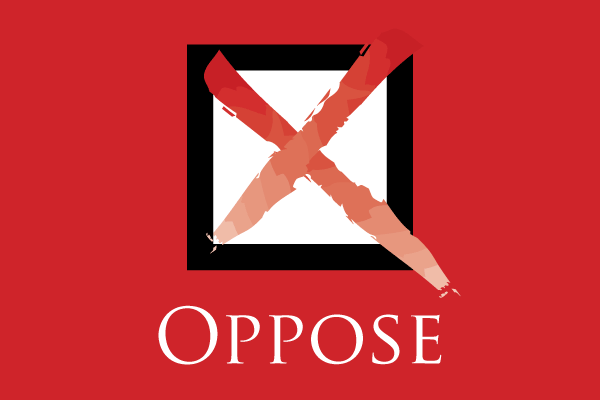
The California Chamber of Commerce continues to oppose legislation proposing to alter how referendums on state laws are presented to voters.
The bill, AB 421 (Bryan; D-Los Angeles), makes a major change in the role of voters in the referendum process.
Currently, a referendum that qualifies for the statewide ballot asks voters to step in the shoes of the Legislature to consider a proposed law. Voters vote “yes” on the referendum measure to approve the proposal, and “no” to reject it.
AB 421 instead asks voters to second-guess the Legislature and vote about the Legislature’s action, not about the proposed law itself. This is a profound difference from the historic intent and function of the referendum.
Together with the initiative and the recall, the referendum, is one of the three direct democracy processes created by Governor Hiram Johnson and Progressive leaders more than 100 years ago to allow the people of California to hold elected representatives accountable for their actions.
AB 421 originally would have taken away Californians’ ability to vote on their legislators’ actions by making it impossible to ever qualify a referendum for the ballot and would have dismantled the state’s direct democracy system.
Amended Bill
The CalChamber appreciates the work of the Senate Elections and Constitutional Amendments Committee, particularly its chair, to improve AB 421 from the original proposal.
Now removed from the bill are provisions that would have constrained the public’s role in the ballot process; truncated the time frame to collect signatures for some types of initiatives; and set up arbitrary bureaucratic deadlines for updating paperwork.
At the July 5 Senate Elections hearing, the author of AB 421 agreed to defer to the Secretary of State — as California’s foremost elections expert — to determine the appropriate language for presenting the “vote question” to voters.
In a July 5 letter, Secretary of State Shirley Weber wrote that the ballot question should be phrased as “Yes, keep the law” and “No, overturn the law.”
The August 14 amendments to AB 421, however, do not reflect that language.
This is troubling both as a matter of public policy and as a matter of legislative process. If a legislator agrees to amendments to reach a compromise and achieve a committee’s support for a proposal and then submits conflicting amendments without consequences, then a very dangerous precedent has been set.
Solution in Search of a Problem
The change proposed in the current version of AB 421 is misleading and in any case could likely only be made with a constitutional amendment.
In any case, there is no evidence that the long-standing approach has confused voters, who have approved 16 (48%) of the 33 laws subject to the referendum over the last 100 years and rejected 17 (52%) of the referended statutes.
Compared with the initiative, the referendum is used lightly. According to the Secretary of State, only 33 state referenda have qualified and gone before the voters in the last 100 years. In the same period, tens of thousands of pieces of legislation have been enacted.
Despite suggestions otherwise, there is no evidence that the referenda process is controlled or manipulated by any interest. In fact, in the last 70 years, of the 17 referenda that have qualified, 10 have dealt with redistricting or Indian gaming compacts, the CalChamber and coalition opposing AB 421 have pointed out repeatedly.
The CalChamber and coalition opposing AB 421 think the current referendum system works well. But the language from the Secretary of State, publicly agreed to by all parties at the July 5 committee hearing, provides more clarity to voters than the language in the August 14 version of the bill.
For these reasons, the CalChamber and coalition continue to oppose AB 421.

